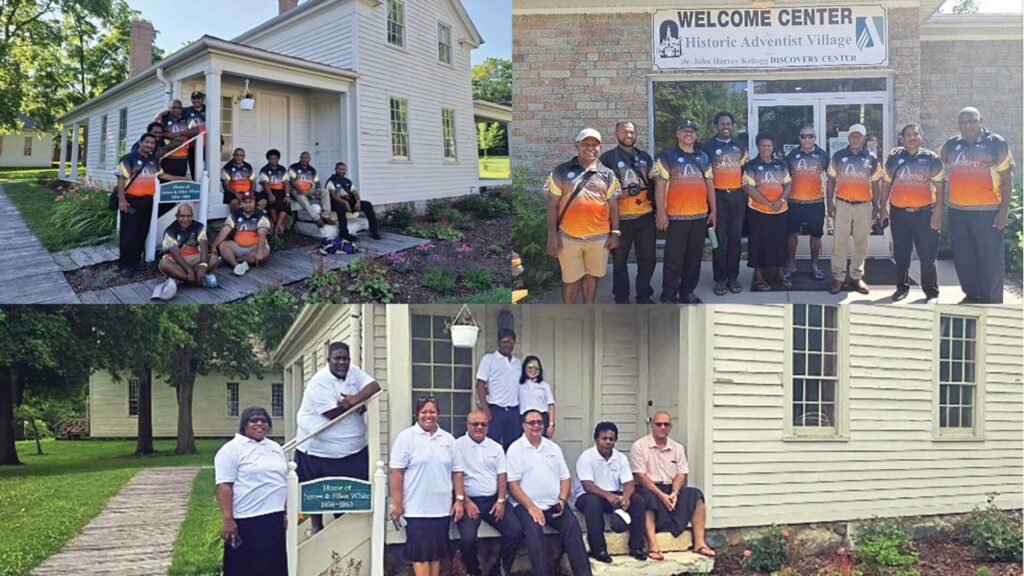Jim Penman is an Australian businessman whose bearded face has become synonymous with lawn mowing. Having started the business as a part-time venture to finance his PhD studies, it is now a very prosperous cluster of franchises that has diversified into many areas.
Known as Jim’s Group, franchises now available include painting, locksmiths, roofing, bin cleaning, antennas, car cleaning, removal and storage, glass, fencing, electrical, dog wash, skip bins, pool care, paving, security doors, computer services, solar, building inspections, amongst many others. The group is even making a foray into professional services such as bookkeeping, finance and insurance.
Some of the franchises in Jim’s Group are already international, with restricted services operating in New Zealand, the United Kingdom and Canada. It appears that there are expectations for even further growth both in Australia and abroad. Is it possible that we will soon see Jim’s Taxis or Jim’s Airlines? How about Jim’s Hospitals, Jim’s Eye Surgery or Jim’s Dental Services? Should Canberra get ready for Jim’s National Party? Or how about the unthinkable . . . Jim’s Church?
Although Jim is now clean-shaven, no longer sporting the same beard as his company’s logo, his name and face continue to be associated with organisation, accessibility and service. “You want something done? We can do it for you—and do it to your satisfaction!” So where is his group headed? Is this turning into Jim’s World?

For the record, I have no association whatsoever with Jim and his franchises. But I do admire what he has achieved, and I believe that as a Church we could learn a lot from his experience. Jesus gives us permission to take a lesson from secular enterprises when He said that “the sons of this world are more shrewd in dealing with their own generation than the sons of light” (Luke 16:8).
So what could we learn from Jim? Here are a few ideas that I have considered.
Specialised. The antenna man wears one hat. He doesn’t do lawns, pools or security doors. He fixes and installs antennas. From the little old lady who needs to move house through to a lazy husband who can’t be bothered to trim the back hedge, Jim has someone to help in each of those niche areas.
Accessible. For every franchise in the group, from paving to getting your dog washed, you simply call one number: 13 15 46. You will be asked what service you would like, and where you would like it done. This centralised access has a lot going for it, both for the consumer and the provider.
Consistent. From the logo to each individual web page to presentation and quality of the delivered service, all is familiar, dependable and replicable. That is probably true for franchises generally, such as McDonald’s and other fast food outlets. Although I rarely step into such premises, others who depend upon them want a predictable product.
Visible. Their logo is not placed apologetically near the bottom of the trailer’s side panel. It is proudly emblazoned across as many panels of the vehicle and trailer as possible. People need them, so why evade such publicity? They take every opportunity to present and advertise themselves. Few people would fail to recognise a Jim’s logo.
The South Pacific Division continues to make innovations that address these areas too, including the development of logos, consistent web pages for churches and others. Wonderful progress, but could we do more? (By the way, local churches shouldn’t depend upon the Division, unions and conferences to do all the innovating.)
I often use the iPhone app South Pacific Adventist Church Finder to locate a church when I am in unfamiliar territory. Understandably, the utility of such apps is only as good as the information supplied to its designers.
When visiting interstate recently, I tried to locate a certain church one Sabbath morning. Guided by this trusty app that had not previously failed me, I ended up beside an open field on the edge of a busy freeway! Not one for admitting defeat, I intensified my efforts to find the church that I knew should exist. Concentrated internet searching and a few phone calls later, we eventually arrived at the church. [pullquote]
At the conclusion of the service, I asked one of the members if their church was ever located in that other spot. “Oh yes, but that was years ago. We moved because of the new freeway.”
As a test, try looking up your own church on that app (download it for free if you don’t already have it). Is the information accurate? Does it tell you what you need to know? Now think of yourself as a potential non-Adventist visitor to your own church, and assess whether the information would satisfy your needs. And don’t forget to hit the button that directs you to your own church website. You may be in for a surprise!
Websites are most meaningful if they are kept current, and contain relevant and helpful information. People appreciate being able to speak with someone when in need, so including a phone number would be considered “helpful information”. It’s probably not a good idea to list the number for the phone that is located in the church office where no-one is there to answer it 97 per cent of the time (unless of course it is diverted to another phone). We should be easily reachable if someone wants to talk with us.
For what service is your church best known in your community? Is it the cooking schools? The powerful preaching? Perhaps a kitchen for the homeless? Is it a health van or regularly conducted CHIP programs? Or could your church permanently close its doors and the community never miss you?
And how about the signage at the front of the church? Is it exploited to its full potential? Perhaps hidden behind overgrown shrubbery, or looking a little tattered and worse for wear? Maybe it is like one church I attended, which was promoting the two angels’ messages on its logo (as one angel appeared to have fallen off).
Jim may have a sincere desire to see people with cleaner pools, or be kept safe behind a new and improved security door. But my guess is that he may have more of an interest in the bottom line. What we have to offer is of infinitely more value than gold and silver. Shouldn’t our Church be driven to a level of innovation, enterprise and entrepreneurship that surpasses that of Jim’s business? I think so.
Dr Robert Granger is a dermatologist and elder of Bunbury Church, WA.






